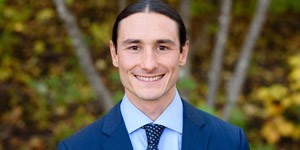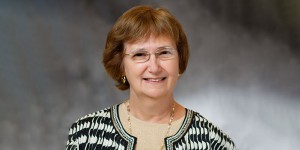By Julia Galzerano

Medical Doctor, Specialist in Internal Medicine, HIV, Addictions and Endocannabinology.
Former member of the Executive Committee of the Uruguayan Medical Union (Sindicato Médico del Uruguay - SMU) and now member of its Arbitration Tribunal and of the Bioethics and Human Rights Commission.
A leading expert on the subject of Medical Cannabis in the SMU.
Member of the Endocannabinology Clinic of Uruguay. Co-founder, vice-president and later – until 2023 – president of the Uruguayan Society of Endocannabinology (Sociedad Uruguaya de Endocannabinología - SUEN).
She is also currently involved in education and research on the medicinal uses of Cannabis, and has published two research papers on the use of Medical Cannabis in the Revista Médica del Uruguay.
I am a Medical Doctor. I graduated from the Faculty of Medicine of the Universidad de la República of Uruguay and I am a specialist in Internal Medicine, HIV, Addictions and Endocannabinology.
I think of myself as a restless, inquisitive person, which has led me to explore many subjects. Today I would like to share some of my professional experiences in the exciting world of medical cannabis and what its status is in my country.

Back in 2012, Uruguay was beginning to study the Law on Cannabis Regulation, at which time I was on the Executive Committee of the SMU. It was from this position that we promoted the creation of a commission composed of doctors from different specialities to study and discuss this bill, which had so many repercussions and so much impact, both nationally and internationally. The commission drafted a consensus document with an emphasis on medical cannabis. Since then, I have been the SMU's leading expert on the subject.
The Cannabis Regulation Act was passed in December 2013 and focuses, in the first instance, on access to recreational cannabis: growers, membership clubs and the sale of cannabis flowers in pharmacies. In February 2015 a decree on Medical Cannabis was drafted.
In 2016 SMU promoted the first International Course on Medical Cannabis, in order to start a process of medical education in this new discipline. In May 2017, together with other colleagues, I had the honour of founding the Uruguayan Society of Endocannabinology (SUEN), in which I served as vice-president first and as president until May 2023.
Regarding my personal activity, in 2017 I founded, established and coordinated the Endocannabinology Clinic of Uruguay (Clínica Uruguaya de Endocannabinología - CEDU) and coordinated and integrated the Medical Cannabis Polyclinic of one of the largest private medical institutions in the country, from its creation until February 2023. Currently, in addition to my clinical practice, I devote myself to training in Medical Cannabis and to the development of clinical research on the subject, having published several of my works and findings in the Revista Médica del Uruguay.
Turning now to the situation in Uruguay, the process could be summarised by the following timeline:
- In December 2013, Law 19172 "Cannabis Regulation Act" was passed.
- Two years later, in December 2015, the decree on medical cannabis was enacted.
- In October 2017, the logistics of sale in pharmacies and the domestic production of medical cannabis products based on extracts of non-psychotropic strains such as 2% cannabidiol (CBD) with less than 1% tetrahydrocannabinol (THC) were authorised and put in place.
- In June 2018 CBD at 5% with less than 1% THC was added to the regulations.
From then on, other domestic products have been added, always based on CBD and with a THC content of less than 1%.
In those early days there were no registered products in Uruguay, so imports were made from the United States and Switzerland. The paperwork for these imports was complex and cumbersome and the costs very high, so few people could afford them.
Domestic products emerged later; however, the economic barriers to access did not disappear.
Let's consider information management in these times of big data and immediacy. Obviously, people began to hear about, and become more and more interested in, the answers that medical cannabis offered for different health conditions. Many desperate patients and families thus turned to home-made products whose composition, origin and quality were unknown, and which, moreover, were not endorsed by professionals with specific experience.
It is in this context that a promising new actor emerges which, some time later, is incorporated into the legal framework: patients' associations, which produced and offered tested products (i.e. studied by authorised laboratories), at a much lower price than pharmacies and, moreover, with a wide variety of chemotypes.
Let us dwell on this point. I believe it is essential to highlight that, although in Uruguay we have the first law regulating cannabis for adult use and for medicinal purposes, we have not yet managed to have an equitable mechanism for all patients to access medicinal cannabis.
Several factors determine this inequity, and SUEN proposes various solutions:
- It is not possible for the general population to pay pharmacy prices, which is why we requested that medical cannabis be incorporated into the Therapeutic Drug Formulary (Formulario Terapéutico de Medicamentos - FTM). This would allow it to be provided by all health care providers, both public and private.
- The need for a variety of THC products, regardless of their concentration (i.e. with more than 1% THC), so that people are not forced to resort to the unregulated market.
- Access to quality scientific information, so that all doctors have knowledge of cannabis and, if the patient needs it, can indicate it as a therapeutic alternative.
Reverting to our timeline: a social movement arose in 2019, leading to the enactment of the Law on access to medicinal cannabis (Law 19847) in the same year. Unfortunately, today, in June 2024, the only thing that has been achieved is the regulation of Master Formulas, which have not yet been put into operation.
This law also introduces two major new features: the figure of the Patients' Association (with the requirement that it must include chemistry and medical professionals and have a limited number of members) and access to information with consequent compulsory training of medical professionals.
Personally, I am absolutely convinced that medical cannabis is a valid therapeutic option and that this law should be implemented. And at this point an ethical reflection arises.
Why? Because, as Diego Gracia, a Spanish doctor and philosopher, says, it is essential to think ethically to help ensure that the services provided in any healthcare field are quality actions.
Doctors were taught that cannabis was a drug of abuse. This is why it will not be easy (although it is absolutely possible) to abandon old biases and open up to new paradigms and to research. We know that medical cannabis is not a panacea, but there is also evidence for its results and safety, and it has almost no adverse effects.
It will be essential, as with any other medicine, to consider whether it is sufficiently effective and of acceptable risk and to assess its risk-benefit ratio, evaluating the seriousness of its adverse effects relative to its benefits.
It will also be essential to ensure that the plant is grown according to good production and manufacturing practices, in a controlled manner and with known composition.
But how should treatment with medical cannabis be developed?
Always and necessarily under the supervision of a trained medical doctor with sound knowledge of indications, contraindications and drug interactions.
This point presents some difficulties for both patients and healthcare professionals that need to be addressed and resolved.
- For patients: as it is considered a "natural" product, there is a tendency to avoid medical consultation, and instead to listen to advice, suggestions and recommendations from friends and family. It is often believed to be a "panacea" that offers magical solutions in areas where traditional treatments remain unresponsive, or that it can eliminate or mitigate, for example, polypharmacy. In addition to this, economic obstacles to accessing the market mean that more people are turning to the unregulated market, as mentioned above.
- For healthcare professionals: there are no policies aimed at educating them (a fundamental theme of SUEN's working platform). Consequently, most doctors have very little training and many biases, which leads to patients looking after themselves.


